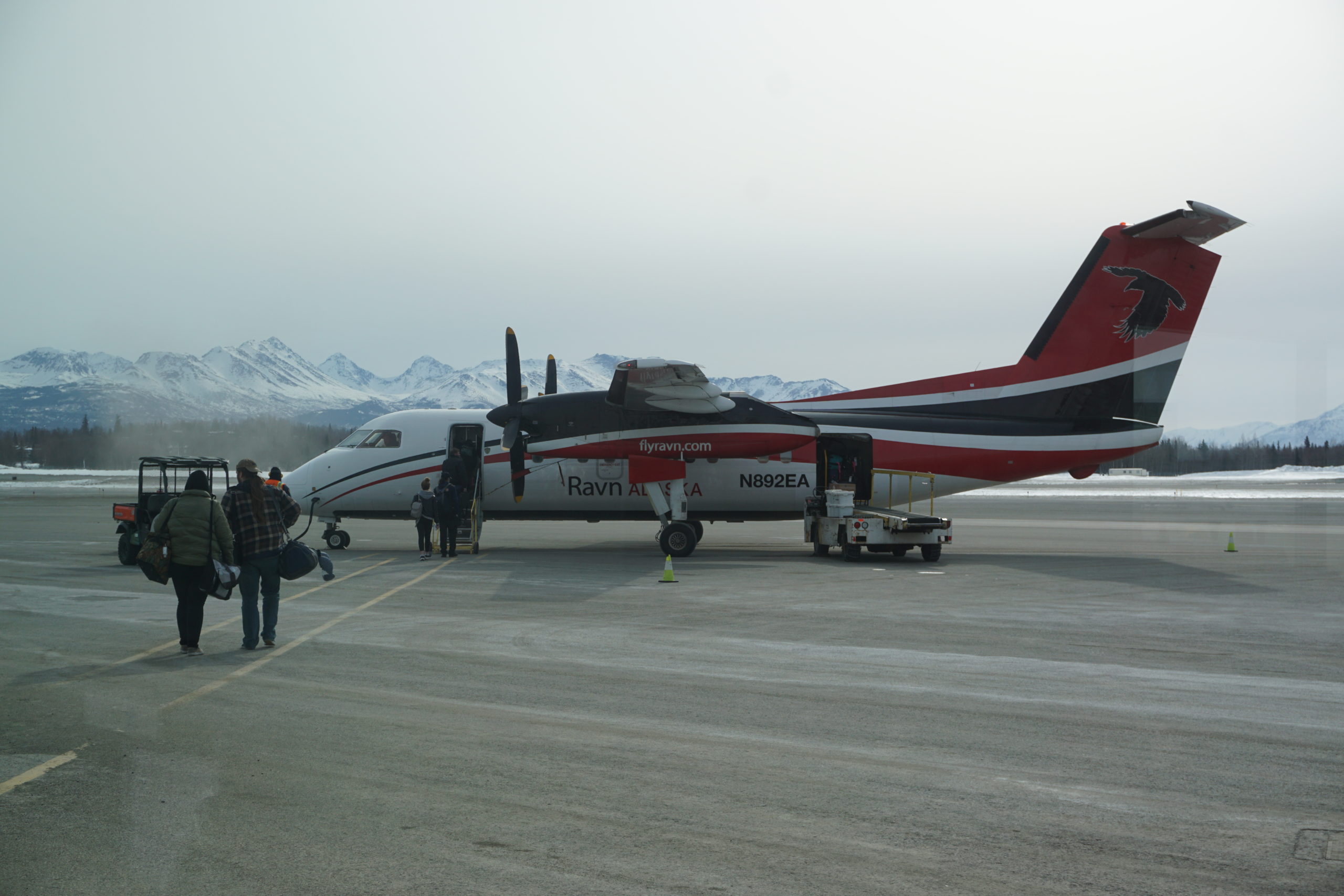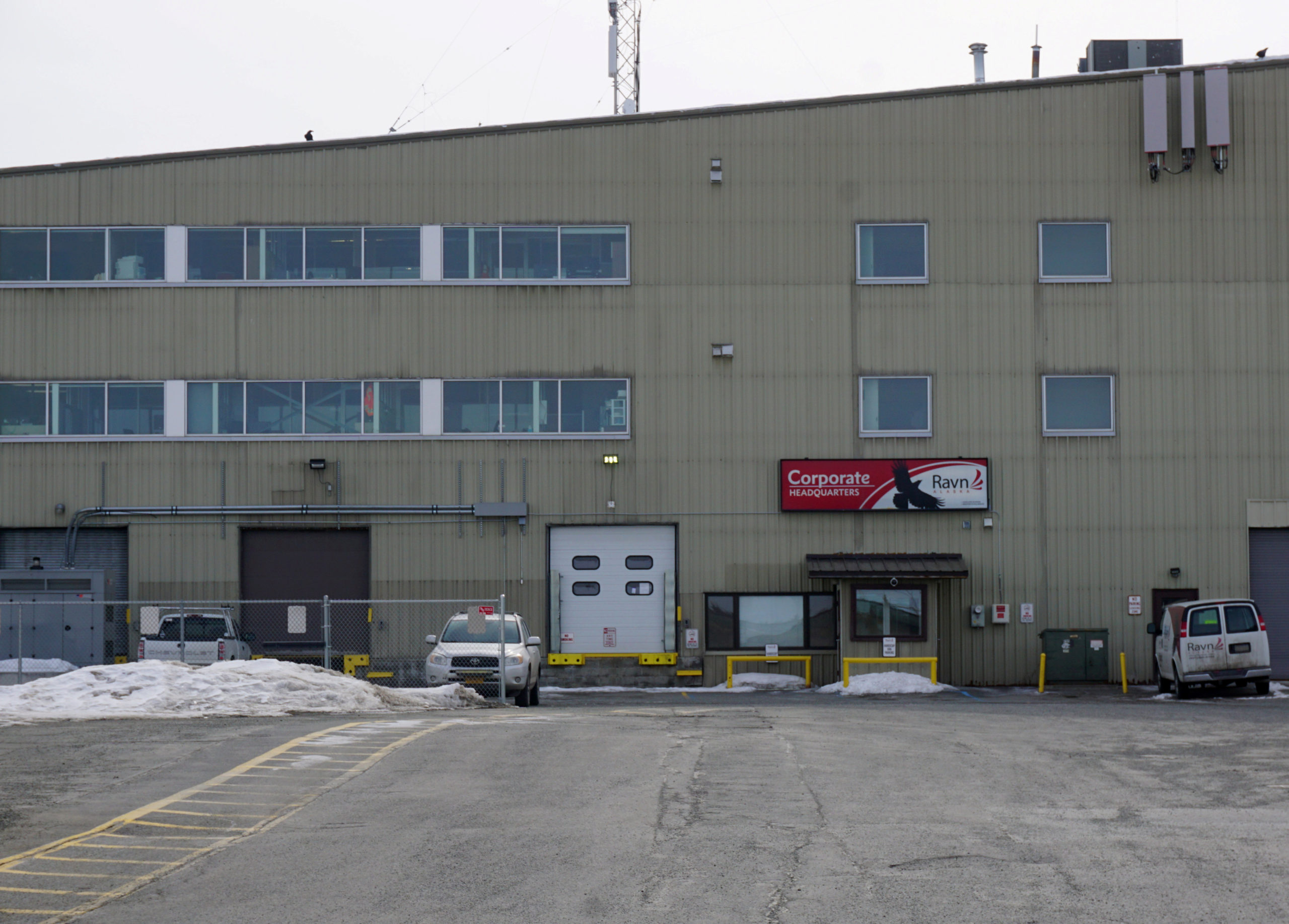A California company’s purchase aims to put a critical Alaska air carrier back into service
FLOAT Shuttle bid $8 million for the FAA certificates for RavnAlaska and PenAir. Meanwhile existing Alaska carriers bought assets of RavnAir Connect, which serves the state's smallest communities.

A southern California airline company that catered well-heeled commuters wanting to avoid traffic-snarled highways has bought a large portion of a bankrupt Alaska airline that serves communities in far-flung northern regions completely off the road system.
The last-minute $8 million bid was submitted Thursday by FLOAT Shuttle, a relatively new company with a name that stands for the slogan “Fly Over All Traffic.”
The sale of RavnAir Alaska and PenAir won approval Thursday in U.S. Bankruptcy Court in Delaware; Ravn was incorporated in that state and the court there is administering the bankruptcy proceedings. It followed an unsuccessful attempt on Wednesday to auction off those parts of Ravn Air Group.
The court also approved Tuesday’s auction that sold off assets of RavnAir Connect, the company division that served the most rural of the 115 communities in Ravn’s network. A combined $35.475 million in high bids for aircraft, buildings and other assets was submitted by several carriers doing business in rural Alaska.
For FLOAT Shuttle, it may seem “at first blush” to be an abrupt move to switch to remote Alaska service from a pricey subscription service in one of the nation’s most densely populated regions, admitted Rob McKinney, the company’s president.
But McKinney is a veteran of rural Alaska aviation, having spent six years at Wings of Alaska in the southeastern part of the state. And his vice president of operations actually worked at Ravn previously, spending five years at the company and working in Kotzebue, Bethel and other air-dependent places, he said.

FLOAT Shuttle fully intends to restart the service that Ravn provided through Ravn Air Alaska, which focused on rural hub communities, and PenAir, which focuses on coastal communities in southwestern Alaska, McKinney said.
“Absolutely, we are 100 percent committed to serving the communities in Alaska,” he said.
The Ravn name will stay, at least for the near future, he said.
FLOAT Shuttle had been eying Alaska since April, when Ravn declared bankruptcy, McKinney said. “The attraction is the opportunity to be able to serve communities that really depend on air travel,” he said.
A resumption of service to some communities could start in about 30 days, pending regulatory approval, with flights to Unalaska/Dutch Harbor as the top priority, McKinney said. The nation’s top-volume seafood port has been struggling with air service cuts since last fall, when a PenAir crash at the airport killed one passenger.
FLOAT Shuttle had good reasons to make the switch to Alaska. The coronavirus pandemic that cost Ravn 90 percent of its passenger revenue, grounded its flights and pushed it into bankruptcy also shut down FLOAT Shuttle’s operations. The company’s business model is to let people fly over Southern California’s normally notorious traffic jams, but “there’s no traffic in L.A. anymore,” McKinney said.
The sale included the Federal Aviation Administration’s Part 121 certificates for RavnAlaska and PenAir, granted by the agency to generally large carriers with regularly scheduled service.
Also part of the acquisition is $15 million of the $31.6 million in Coronavirus Aid, Relief, and Economic Security Act assistance that Ravn had secured. The CARES Act money was not necessary for the purchase, but it will likely speed up the rehiring of workers and resumption of service, McKinney said. “We ran the business model with and without it, and its viable either way,” he said.
Assets associated with the most rural of Ravn’s operations fetched much more in bids than the Part 121 carriers.
Aircraft, buildings, land, leases and equipment associated with RavnAir Connect, the division that served the smallest communities in Ravn’s network, drew offers from 14 bidders, Ravn said.
RavnAir Connect is a Part 135 carrier, a category that the FAA says includes operators providing “critical passenger and cargo service to remote areas, providing a lifeline to populations that would not otherwise exist.”
The largest chunks of the RavnAir Connect planes, buildings and other assets that were put on sale, according to the document, will go to Fairbanks-based Wright Air Service, which bid $12.8 million for four aircraft and other assets in Utqiagvik, Deadhorse, Galena and Fairbanks, and to Anchorage-based Grant Aviation, which bid $10.3 million for 15 aircraft, equipment and ground facilities in the southwestern Alaska hub of Bethel.
The successful bidders also included Nome-based Bering Air, which put up more than $3 million for ground assets in Aniak, Kotzebue, Unalakleet and Nome, according to the summary filed in court.
For Ravn Air Group, the sales come as a relief, the company’s president said in a statement.
“While it is truly unfortunate that we can’t restart our RavnAir Connect Part 135 airline, we are hopeful that the Alaska-based buyers of those assets will hire many of our former employees; and we are thrilled to hear that the FLOAT shuttle team intends to rehire as many of our remaining employees as possible and quickly resume flights to the many vital communities Ravn serves throughout our great state,” Dave Pflieger, Ravn’s president and chief executive officer, said in the statement.